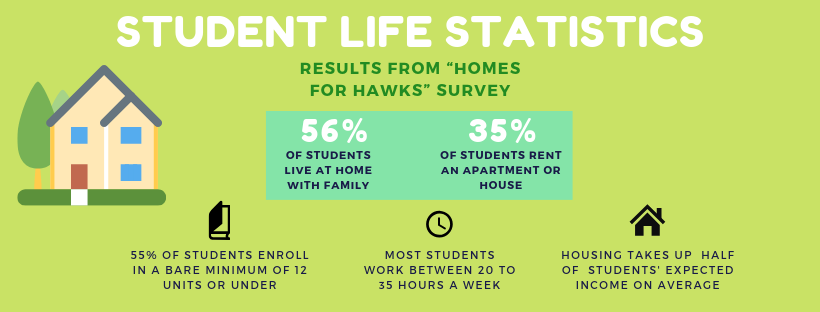Organization plans to address issue of homelessness on campus
Homes for Hawks is a student-led project that aims to help homeless students on campus.
The project was originally founded in the fall of 2018 by Cosumnes River College’s Peer Mentoring Program.
“The main objective of this project is to become the housing resource hub to current and future students at CRC,” according to the organization’s housing resource proposal.
Peer Mentor Malisha Blakes said the project came about because other peer mentors were looking for rooms to rent. As the project evolved, Blakes said they realized that there is currently a limited amount of resources on campus for “housing insecure students” who need help finding a place to sleep.
The proposal highlights the issue of homelessness on campus in addition to legislation aimed at helping homeless college students.

Among the certain bills that would aid homeless students is Assembly Bill 302, which would let homeless students use community college parking facilities to sleep in if passed.
“We need to be working on a more permanent solution for this problem,” said Blakes. “We can let them stay in our parking lots, but then what happens? Are we going to provide case management? Are we going to give them jobs? It needs to go a little further.”
CRC IT Business and Tech Analyst Paul Meinz said he volunteered to help the Homes for Hawks organization during the research process.
“Initially, what I did for them was I helped review some of their surveys,” said Meinz.
Meinz said that the California Education Code put homeless students in student groups who have disproportionate impact. He said that he faced some difficulty gathering data on homelessness status because of the sensitive nature of the topic.
“If a student is experiencing situation where they don’t have a permanent place to live, they don’t necessarily report that information because they don’t want people to find out or they don’t know that CRC is willing to hear that type of thing,“ said Meinz.
Due to the small sample size of students who are willing to disclose their housing status, Meinz said that the data was “not the best.”
Orianna Barboza, a 19-year-old psychology major, said that projects like Homes for Hawks are important because it gives housing insecure students a voice.
“A lot of people are afraid to speak up because they are embarrassed and people can be judgemental,” said Barboza. “‘Homes for Hawks’ is normalizing the situation by talking about it more and allowing people to know that it’s okay to be in the position that they are.”
For questions or inquiries about the organization, email [email protected].
